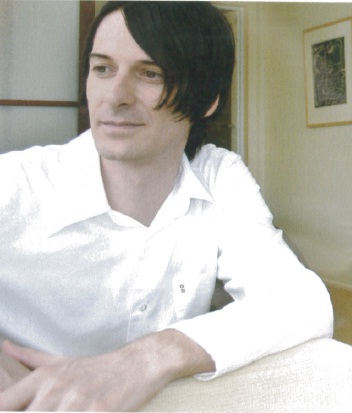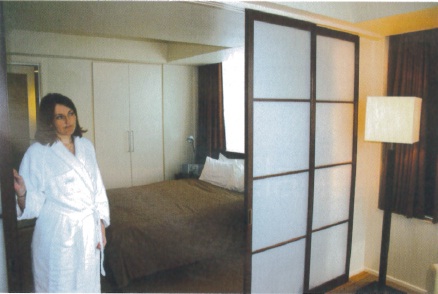Why serviced apartments are worth every penny
by Owen Schaefer
Picture this: an exhausting 14-hour flight. You arrive in Tokyo, dishevelled. All you can think of is how much you want to get home. Your ride picks you up at Narita and drives you through the evening traffic, dropping you off at your doorstep. You punch in the security code, plunk your bags in the corner of the bedroom, and collapse into the comfort of your sofa to watch a little satellite TV before finally drifting off to sleep in a bed you’ve never slept in before. Perhaps tomorrow you’ll get outside and see what Tokyo looks like by daylight.
This is the lure of a serviced apartment. They can provide an open door to a city notorious for its housing difficulties, and with a long list of amenities, they cater to a market increasingly interested in convenience. Now that cell phones can globally roam, and laptops have internet access at Mos Burger, travelers are willing to spend less and less time hunting down their daily comforts. Serviced apartments take care of some of the biggest obstacles to a long-term stay in the city, but just how much are you willing to pay?
Take a look in the classified ads in a Tokyo paper and you’ll find any number of properties advertising rents of ¥1 million, ¥2 million, or more. For those of us who pay roughly that amount per year, the mind boggles. But when measured against the luxury hotel rooms that were taking a similar clientele seven years ago, the totals begin to make more sense.
While a double room with two occupants in the Akasaka Prince will hit you for ¥47,500 per day, Oak-wood serviced apartments offer two bedrooms in the same part of town for ¥37,000 a day, provided you stay for a minimum of one month. Add it up, and that’s roughly ¥300,000 less than the luxury hotel. Add to that the potential savings of cooking in your very own kitchen, and it starts to sound like a much better deal.
Serviced apartments take care
of some of the biggest obstacles
to a long-term stay in the city,
but just how much are you willing to pay?
The amenities compare favorably as well. Supporting their claim that, “All you need is your suitcase,” rooms from Mori Living come with everything you could ask for: a full compliment of furnishings; internet service, television, cable TV and video, a refrigerator, microwave, coffee maker, toaster, and dishwasher in the kitchen; a washing machine, dryer and iron; all cutlery, dishes, and cooking utensils; a personal safe, and even towels.
Naturally, you may not always agree with your property’s aesthetic sensibilities. Judging from website photos and the rooms I have seen personally, there is a range of styles that varies from antiseptic modernism to retro-contemporary nightmare, but with many tasteful shades in between. If branding is your bag, Mori’s Roppongi Hills Residence boasts rooms by designers Conran and Partners, with names that may be more interesting than their contents: The Spiritualist, The Hedonist, and The Humanist. With few serviced apartment buildings more than four years old, you can also guarantee a certain level of modernity and cleanliness.
Even compared against the hunt for a regular rental mansion in Tokyo, serviced apartments have a competitive edge. Key money — the non-refundable payment of ‘thanks’ to a landlord in Japan — is still levied on most regular rental properties, and normally collected every two years. Equally irritating, deposits are often only partially returned, with the remainder claimed as a ‘cleaning fee’. This means that getting set up in your own place involves some serious down payments.
Take the conservative estimate of a downtown two-bedroom apartment for ¥150,000 — add two months’ key money, two months’ deposit, one month’s rent, and one more month for the rental agency, and you are left with a hefty ¥900,000 to be paid before even moving in. And unless you enjoy a very spartan lifestyle indeed, add another ¥100,000-¥200,000 for furnishings, appliances, phone lines, and Internet services. Without key money or deposit in most cases, that ¥1 million price tag on the serviced apartment starts to look a little tempting.
So why isn’t everyone living in this wall-to-wall-carpeted, designer lap of luxury?
Naturally, taking the time and initial expense to house-hunt gives you more than an indulgence in your own taste of furniture; the finances begin to break down after you pass that initial first month. A full year in an apartment with Oakwood would cost a whopping ¥13.5 million, while the more humble rental mansion comes in at a mere ¥2 million.
Likewise, renting a serviced apartment is not simply a matter of stepping up to the front desk and asking for a room key. While leases for individuals are not unheard of, the customer is required in most cases to be sponsored by a corporation. The company foots the bill, while the business traveler relaxes in style. One month in a hotel may seem like a very long vacation indeed, but the Mori Living website classifies a one-month stay as ‘short term’, indicating that they would most certainly like you to relax, take off your shoes, and empty your company coffers for as long as you like.
For companies, serviced apartments provide an enormous simplification of the process of bringing or sending overseas representatives, and as a result, employees are able to be productive sooner, spending less time adjusting and more time getting down to the business of business. But for the tenant, a serviced apartment can also act as a kind of springboard over the language barrier. With English-speaking staff, and a useful concierge desk, ordering a pizza does not require a language lesson, and sending out a package does not even involve the post office.
More importantly, they will guide you through the process of finding your local supermarket, bilingual medical facilities, and day care or international schools, and also provide housekeeping service, limousine service, and in many cases a spa or gym.
While it may be short on cultural integration, you know that first ¥1 million is going to get you some first-rate directions to Starbucks in the morning.










